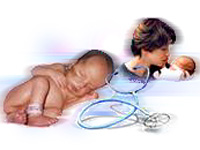Common Gynaecological & Urogynaecological Condition - SWCH9013
Faculty: Faculty of Medicine
School: School of Women's and Children's Health
Course Outline: http://swch.med.unsw.edu.au/
Campus: Sydney
Career: Postgraduate
Units of Credit: 6
EFTSL: 0.12500 (more info)
Indicative Contact Hours per Week: 0
Enrolment Requirements:
Women's Health Medicine program only (7014 & 9014)
CSS Contribution Charge: 3 (more info)
Tuition Fee: See Tuition Fee Schedule
Further Information: See Class Timetable
View course information for previous years.
Description
- Pelvic pain - Structural & functional issue & diagnosis
- Management & future directions of pelvic pain
- Approches & diagnosis to abnormal bleeding
- Management and future directions of abnormal bleeding
- An overview of the physiology of micturition
- Urinary Pain- Recurrent bacterial cystitis and Painful bladder syndrome
- An overview of the Anatomy of Genitourinary Prolapse
- Urinary Incontinence-Diagnosis and Conservative Management
- Overview of surgical therapies/complications
- Describe the potential impact of various common gynaecological and urogynaecological conditions and apply this knowledge to situations likely to be encountered in clinical practice.
- Confidently discuss the investigation and management of various common gynaecological and urogynaecological conditions
- Provide competent, evidence-based and balanced advice to patients/clients presenting with a range of common gynaecological and urogynaecological conditions.









